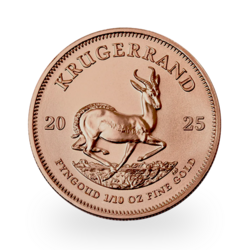By Enoch Yiu
Two newly launched gold futures products in the Hong Kong market debuted to better than expected turnover on Monday, as gold traders credited physical delivery settlement and longer trading hours for the strong start.
The two products, one traded in US dollars, the other in yuan, mark the third attempt by the local stock exchange to step into gold trading.
As of 7.30pm – 11 hours after their debut at 8.30am – 3,098 futures contracts had changed hands. Of these, 2,186 were priced in yuan and 912 in US dollars. Each contract represents one kilogram of gold. They will continue to trade until 1am Tuesday morning.
“The first day’s turnover of the two gold futures was better than expected. The gold market is pretty quiet on Mondays but the fact the HKEX could still achieve such a higher turnover make for a strong debut,” said Jasper Lo Cho-yan, the chief strategist at King International Financial.
Lo said yuan gold futures were more attractive than US dollar gold futures partly because investors expect the yuan to rise in value against the US dollar.
“Investors who bet on yuan gold futures would benefit from both a rise in gold prices and the appreciation of the yuan,” he said.
Lo and other gold traders have expressed optimism about the two new products because they offer physical delivery, have better features and a lower margin than previous incarnations that have flopped.
Charles Li Xiaojia, the chief executive of HKEX, said it was the first time the local bourse had offered physical delivery settlement.
“It is also the first time we have launched US dollar and renminbi gold products at the same time,” he said at the launch ceremony.
HKEX, which operates the stock exchange and futures market in Hong Kong, has been aggressive in its ambition of expanding into commodities. It bought the London Metal Exchange in 2012 as a short-cut to realising that goal.
The LME also launched new gold products in London on Monday.
“Launching the gold products in Hong Kong and London at the same time means they can be traded 24 hours a day,” Li said.
Haywood Cheung Tak-hay, the president of the Chinese Gold and Silver Exchange Society, said: “The new gold futures products have physical delivery which should make them attractive to end users such as jewellery manufacturers and retailers who want to trade the products to hedge risks in their demand of gold,” Cheung told the Post.
The last time HKEX launched a gold product was during the financial crisis in October 2008. The contract was scrapped in March 2015 owing to poor turnover. Li said this was right time for a reboot.
“The gold market has changed substantially since 2008, while China and the renminbi have also changed a lot,” he said.
In 2008, China had not yet started the process of internationalising the yuan. That started in 2009 when Beijing allowed international investors to use the currency to settle trade and investments.
“Now the yuan has become an international currency and one of the reserve currencies that central banks invest in. The demand for yuan products is huge,” Li said.
“Many people who trade gold mainly refer to prices quoted in the US and London. In Asia there is no benchmark, and I hope the newly launched gold futures will play the role of the benchmark gold products in the Asian time zone.”
The Futures Exchange, now a unit of HKEX, first traded gold futures in the 1980s. But those were abolished in the mid-1990s, owing to a lack of interest.
Short trading hours were blamed by many for the previous failures. The gold futures launched in 2008 only traded for eight hours a day, far below the Chicago Mercantile Exchange in the US which trades 23 hours a day.
Lessons appear to have been learned; the two new gold futures markets in Hong Kong will trade for 16 hours a day.
Original source: South China Morning Post
Reproduction, in whole or in part, is authorized as long as it includes all the text hyperlinks and a link back to the original source.
The information contained in this article is for information purposes only and does not constitute investment advice or a recommendation to buy or sell.

















